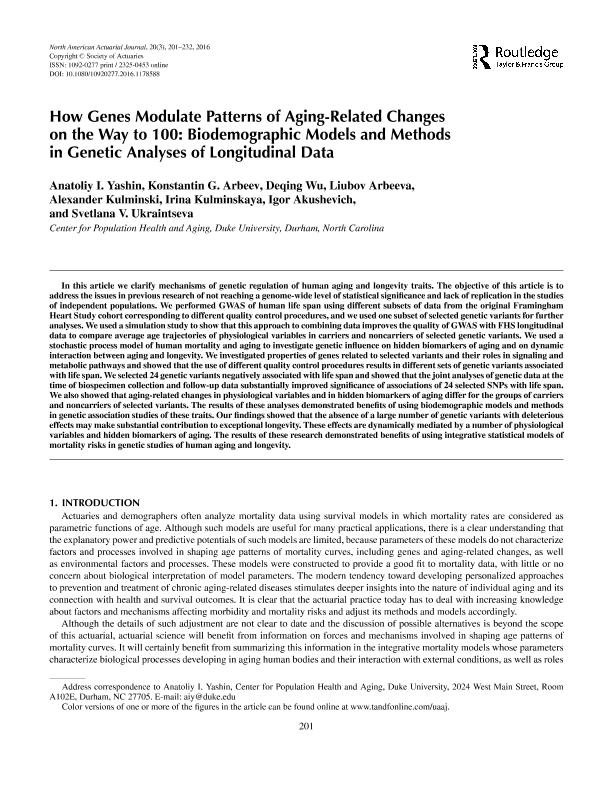Outras classificações: 6
How genes modulate patterns of aging-related changes on the way to 100 : biodemographic models and methods in genetic analyses of longitudinal data

Contenido multimedia no disponible por derechos de autor o por acceso restringido. Contacte con la institución para más información.
Outras classificações: 6

